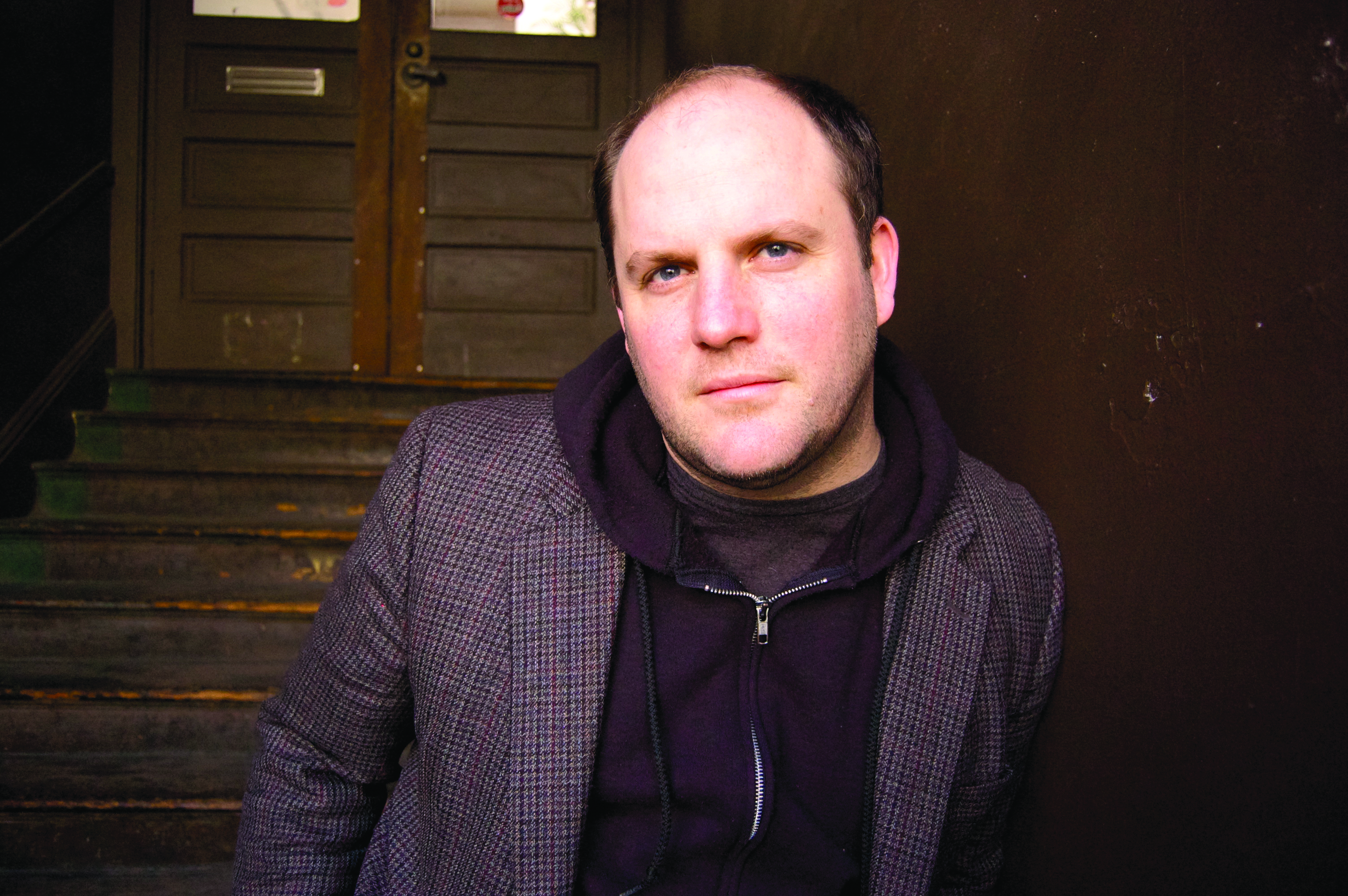Forget about our ferns and forests and fleece; never mind our Prius-driving liberal monoculture or the Seahawks or coffee or Bertha. A transplant to our city in 2004, novelist Peter Mountford has no use for such petty regional concerns. He was raised all around the globe, including Sri Lanka and Washington, D.C., since his father was a well-traveled executive at the International Monetary Fund.
“You’re always on the outside looking in,” says Mountford. “That instilled in me a deep sense of the complexity of the globe.” Before arriving at the University of Washington to pursue a MFA in creative writing, he explains, “I had lived in Ecuador, Paris, New York, D.C., Scotland” during his post-collegiate 20s. “I had been traveling the world. I had never owned any furniture.”
A decade later, he’s much more established, having bought a house with his wife, now raising two kids, and teaching as Richard Hugo House’s writer-in-residence. “I started teaching there in 2007 or 2008. I’m actually able to make a living,” he says, enjoying a newfound “rootedness, which is what a writer needs.”
Instead of being his subject, Seattle is Mountford’s base for looking outward at the world—“a place of relative calm and peace” where he’s published two globally engaged novels: 2011’s A Young Man’s Guide to Late Capitalism, about intrigue in Bolivia, and now this month’s The Dismal Science (Tin House, $15.95), in which an Italian-born economist at the World Bank, based in Washington, D.C., goes off the rails and rebels against an entire monetary-political system. That character’s quixotic, sometimes self-destructive agenda even takes him to Bolivia, where we meet some characters from Mountford’s first novel—including President Evo Morales.
“It was gonna be one book with two stories interweaving,” says Mountford of his two loosely linked novels. “But they were about two different things. One is about marriage and fragility.” That would be Dismal Science, whose protagonist, Vincenzo, is a lonely widower in his 50s with his only child away in college. “And the other is about ambition,” meaning Late Capitalism, whose heedless young hero works for a hedge fund. They’re dissimilar men at different ages and career points, yet they’re both working in the trenches—with varying degrees of self-awareness—of the global financial system.
“My father worked for the IMF,” says Mountford, “so I had a sense of what the World Bank was like—socially as well as professionally.” In such a cozy world of think tanks and investment banks, government agencies, international borrowers and lenders, he sees “no black hats and white hats, no heroes and villains. The reality is much more complicated than that. The duty is to explore the gray areas.”
Vincenzo’s motives for burning his bridges—this being 2005, before the global financial crisis—are accordingly muddled. Maybe it’s a midlife crisis or a snub at work, maybe it’s a stroke of conscience (prompted by Occupy Wall Street types protesting outside his office), or maybe it’s a gesture to impress his daughter. “I resisted the flattening” of the flawed economist, says Mountford. “I’m interested in foreigners in places where their cultural identity is radically disrupted.”
This formulation applies to the very mutable young Gabriel in Late Capitalism, too. Like him, Mountford sees Vincenzo as “also a person without a place. He’s truly outside. He has nothing to bind him.” Vincenzo’s old ties to Italy and family are gone; then without a wife or job, he discovers that the only address that matters is his e-mail address. His future fate is uncertain. “Maybe he’d be an economics professor,” the author muses, “Maybe he’d be working for some large investment bank, maybe he’d be in jail.” Both books “are about strategy and the absurdity of trying to plot your way through life. We can’t all live like Machiavelli. The world is full of chaos.”
And that’s what Mountford prefers to write about. His next book is set during Sri Lanka’s recent civil war, and he has no plans to pen campus novels or books about “neurotic middle-class suburbanites” or “the leafy green suburbs of D.C.” or Seattle. Instead his focus is internationalist and systemic: to explore “the role of money in our lives and how to escape the banality of our lives as capitalist entities.”
bmiller@seattleweekly.com
RICHARD HUGO HOUSE 1634 11th Ave., 322-7030, hugohouse.org. $5. Free, but RSVP. 7 p.m. Thurs., Feb. 13. (Also 7 p.m. Thurs., Feb. 27, Chop Suey.)








